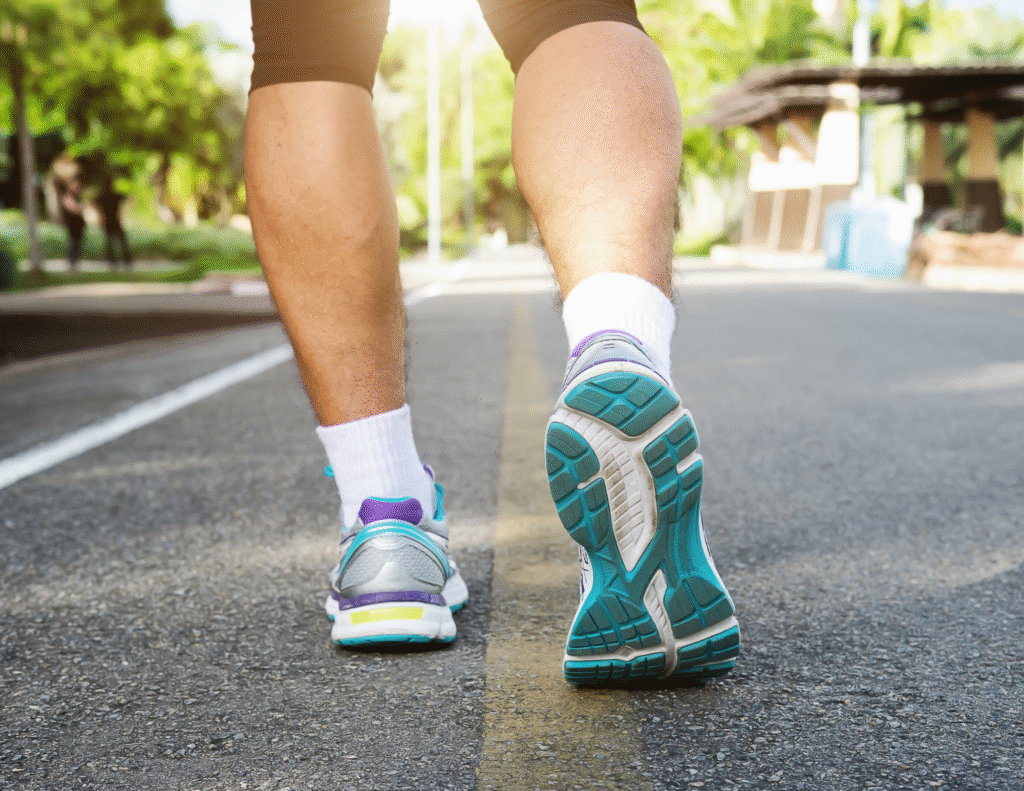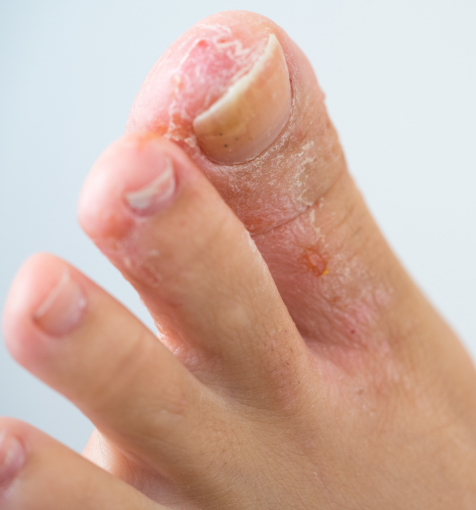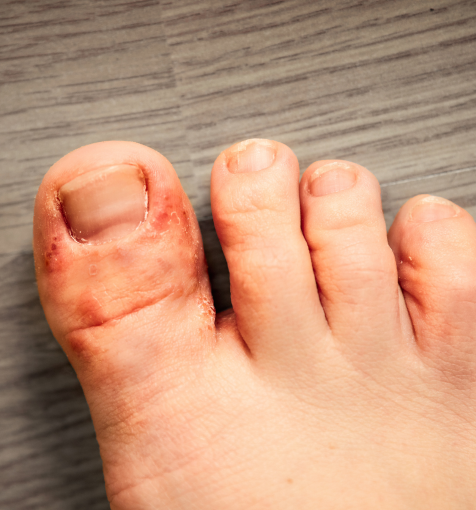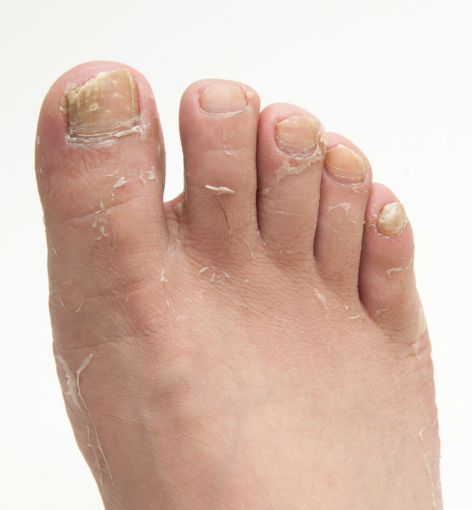Effective Diagnosis and Treatment for Healthy Feet in New Jersey
Athlete’s foot is a common fungal infection that primarily affects the feet, causing itching, burning, and flaking. While not typically dangerous, it can be uncomfortable, unsightly, and sometimes difficult to treat without professional care. At Skin & Laser Center of NJ, our providers offer targeted, effective treatment options to manage athlete’s foot, prevent complications, and restore the health and comfort of your feet.


Athlete’s foot develops when fungus grows on the skin of the feet, often in warm, moist environments such as:
Showers and locker room floors
Swimming pool areas
Inside sweaty or tight-fitting shoes
The fungus spreads through direct contact with an infected person or contaminated surfaces. Some individuals are genetically predisposed to infection, while others rarely experience symptoms even with repeated exposure. Contributing factors include:
Excessive sweating
Wearing non-breathable footwear
Poor foot hygiene
Minor cuts or abrasions on the feet
Understanding these risk factors is essential for prevention, treatment, and reducing the likelihood of recurrence.
Athlete’s foot can manifest in a variety of ways, often depending on the severity of the infection. Common signs include:
Itching, stinging, or burning sensations on the feet
Scaly or flaky skin, especially between the toes
Moist, raw, or cracked skin in affected areas
Redness and inflammation
Foul odor in severe or persistent cases
Early identification and treatment are important to prevent the infection from spreading to other areas of the body, including the toenails, hands, or groin.


Our team provides personalized care to treat athlete’s foot effectively and reduce recurrence:
Topical antifungal creams or ointments: Applied directly to affected areas to eliminate fungal growth
Oral antifungal medications: Prescribed for severe or persistent cases
Foot care guidance: Advice on proper hygiene, drying techniques, and breathable footwear to prevent reinfection
Combination therapy: Integrating topical and oral treatments for optimal results
With professional care, most cases of athlete’s foot resolve quickly, allowing patients to regain comfort and confidence in their feet.
Learn More About Athlete’s Foot
Treatment for athlete’s foot typically involves topical or oral antifungal medications. You may choose not to treat it if your condition doesn’t bother you and you have no health problems that increase your chance of severe foot infection, such as diabetes. However, know that untreated athlete’s foot may cause blisters or cracked skin that can lead to a severe bacterial infection. Also, if you don’t treat athlete’s foot, you can spread it to other people.
Severe infections that appear suddenly usually respond well to treatment, while long-lasting chronic infections can be more difficult to cure.
There are several highly effective treatment options for athlete’s foot. Your provider will prescribe one of the following types of medication to be applied as directed at home:
It’s important to note that athlete’s foot can return following treatment, so there are preventive care steps that you should take to help avoid future infections. Even with proper medical treatment, the providers at Skin & Laser Center of NJ recommend taking the following precautions:
Many of these tips can also help to reduce your chances of developing toenail fungus as well. The goal is to keep your skin as clean, dry, and protected as possible.
Convenient walk in hours available below. No appointment needed! Accepting private insurance and medicare. No medicaid plans.
Learn more about medical treatments at New Jersey’s Skin & Laser Center of NJ. Call 201-500-7525 or contact us online to schedule a consultation.